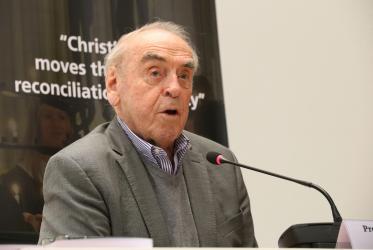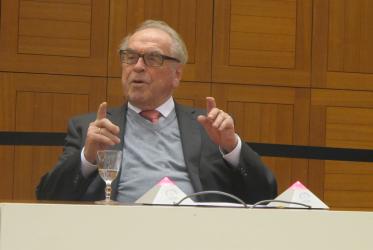Displaying 21 - 40 of 58
Moltmann spricht über Geist der Wahrheit in postfaktischem Zeitalter
02 December 2019
Moltmann reflects on spirit of truth in a post-truth era
02 December 2019
Hope in These Troubled Times
02 December 2019
WCC to host lecture and book launch by Jürgen Moltmann
20 November 2019
The year that shook the world: 1968 in retrospect
18 October 2018
Do we need an ecological reformation?
14 June 2017





